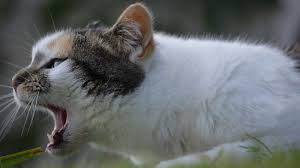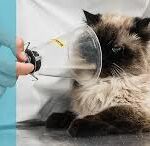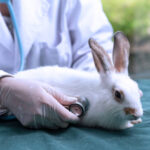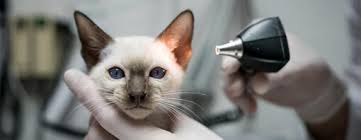Introduction
Coughing in Cats are known for their grace and agility, often charming us with their purrs and playful antics. However, when a cat starts coughing, it can be concerning for pet owners. Understanding the reasons behind a cat’s cough and knowing how to address it can make a significant difference in the health and well-being of our feline friends. This article will explore the various causes of coughing in cats, the symptoms to look out for, diagnostic methods, treatment options, preventive measures, and how to provide home care for a coughing cat.
Table of Contents
Causes of Coughing in Cats

Coughing in cats can be attributed to a variety of causes, some of which are more serious than others. Here are the most common reasons why a cat might be coughing:
“Understanding and Managing Coughing in Cats: Causes, Diagnosis, Treatment, and Prevention”
- Respiratory Infections: Infections caused by bacteria, viruses, or fungi can lead to coughing in cats. Feline herpesvirus and calicivirus are common viral infections that affect the respiratory system, while Bordetella bronchiseptica is a notable bacterial cause.
- Asthma and Allergies: Feline asthma, similar to human asthma, is a chronic inflammatory condition of the airways that can cause coughing, wheezing, and difficulty breathing. Allergies to pollen, dust mites, or cigarette smoke can also trigger coughing fits in sensitive cats.
- Heartworms: Although more commonly associated with dogs, heartworms can also infect cats. These parasites lodge in the lungs and heart, leading to coughing, difficulty breathing, and other severe symptoms.
- Foreign Bodies: Sometimes, Coughing in Cats may inhale small objects, like grass or food particles, which can get lodged in their airways and cause coughing as the body attempts to expel the foreign matter.
- Other Potential Causes: Coughing can also be caused by tumors in the respiratory tract, exposure to irritants like smoke or strong chemicals, and certain underlying health conditions like heart disease.

Symptoms Accompanying Coughing
When a cat coughs, it’s important to observe any additional symptoms that may accompany the coughing. These can provide clues about the underlying cause and the severity of the condition. Key symptoms to watch for include:
- Wheezing or difficulty breathing
- Sneezing or nasal discharge
- Lethargy and reduced appetite
- Vomiting or gagging, which can sometimes be mistaken for coughing
- Fever or other signs of infection
- Weight loss or a general decline in health
Differentiating between coughing and other sounds like gagging or retching can be challenging. Coughing typically produces a dry, hacking sound, whereas gagging is more associated with the act of trying to expel something from the throat.
Diagnosing the Cause
Proper diagnosis is crucial in determining the cause of a cat’s cough and implementing the right treatment plan. Veterinary consultation is essential, as a professional can conduct a thorough examination and recommend appropriate diagnostic tests. Common diagnostic methods include:
- X-rays: Imaging can reveal abnormalities in the lungs, heart, and airways, such as tumors, fluid accumulation, or signs of asthma.
- Blood Tests: These tests can detect infections, inflammation, and other systemic issues that may be causing the cough.
- Endoscopy: This involves inserting a small camera into the airways to visually inspect for foreign bodies, tumors, or other anomalies.
- Fecal Examination: To check for parasites, including lungworms, which can cause coughing.

Treatment Options
Once the underlying cause of the coughing is identified, treatment can begin. Treatment options vary depending on the diagnosis but may include:
- Medications: Antibiotics for bacterial infections, steroids for asthma and inflammation, and bronchodilators to open up the airways are common treatments. Antiparasitic medications are used to treat heartworms and other parasitic infections.
- Environmental Changes: Reducing exposure to allergens by using air purifiers, keeping the home clean, and avoiding smoking indoors can help alleviate symptoms in cats with asthma or allergies.
- Surgical Interventions: In cases where tumors or foreign bodies are present, surgical removal may be necessary.
- Supportive Care: Ensuring the cat stays hydrated, providing a stress-free environment, and monitoring their condition closely are important aspects of supportive care.
Preventive Measures
Preventing coughing in cats involves a combination of regular veterinary care and proactive measures. Here are some key preventive steps:
- Regular Check-Ups: Routine veterinary visits can help catch potential health issues early before they become serious problems.
- Vaccinations: Keeping up with vaccinations can prevent common respiratory infections that cause coughing.
- Preventative Treatments: Using heartworm preventatives and regular deworming can protect against parasitic infections that cause coughing.

Home Care for Coughing Cats
Caring for a coughing cat at home requires attention and diligence. Here are some tips to help manage the condition and provide comfort:
- Comfortable Environment: Create a quiet, stress-free environment with plenty of fresh air. Avoid exposing the cat to strong odors, smoke, or other potential irritants.
- Monitor Symptoms: Keep a diary of coughing episodes, noting the frequency, duration, and any associated symptoms. This information can be valuable for your veterinarian.
- Hydration and Nutrition: Ensure your cat stays well-hydrated and continues to eat a balanced diet. Sometimes, moist food can be easier for a coughing cat to consume.
Conclusion
Coughing in cats can be a sign of various underlying health issues, ranging from minor irritations to serious conditions like asthma or heartworms. Understanding the potential causes and recognizing accompanying symptoms are essential steps in addressing the problem. A timely diagnosis by a veterinarian, appropriate treatment, and preventive measures can help ensure the well-being of a coughing cat. By providing diligent care and a supportive environment, pet owners can help their feline companions recover and maintain good health.





























































